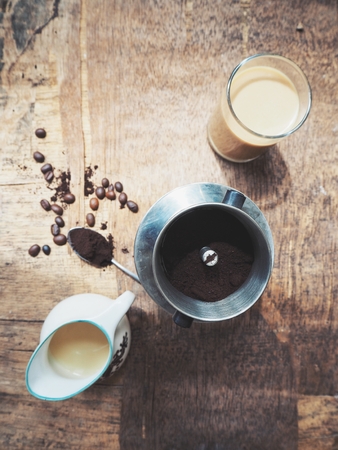Understanding Eco-Conscious Coffee Brewing
Eco-conscious coffee brewing is gaining momentum across the UK, as more people seek to align their daily rituals with broader environmental values. Here, sustainability is more than just a buzzword—it is about making informed choices that reflect respect for local communities and the planet. For British coffee enthusiasts, this means considering every aspect of their brewing process, from the origin of the beans to the disposal of used materials. The UK’s commitment to reducing waste and carbon emissions shapes how people approach their morning cup; initiatives like composting coffee grounds, sourcing ethically grown beans, and using reusable equipment are becoming increasingly standard. In particular, AeroPress users are exploring innovative ways to minimise their environmental footprint while still enjoying high-quality coffee at home or on the go. This practical approach dovetails with the UK’s strong tradition of environmental stewardship and community-led sustainability efforts, making eco-conscious brewing a natural extension of everyday life.
Sustainable AeroPress Practices for Daily Brewing
Adopting sustainable AeroPress habits is an achievable goal for coffee lovers across the UK, whether at home or in the office. By making mindful choices and small adjustments to your daily brewing routine, you can significantly reduce both waste and energy consumption. Below are practical, locally relevant tips designed to suit British households and workplaces:
Choose Reusable Filters
Swapping disposable paper filters for reusable metal or cloth alternatives is a simple yet impactful change. Not only do these filters cut down on paper waste, but they also offer a consistent brewing experience and are readily available from UK-based suppliers.
Filter Comparison Table
| Filter Type | Waste Generated | Average Lifespan | Availability in UK |
|---|---|---|---|
| Paper (Single Use) | High | One Brew | Common |
| Metal (Reusable) | Low | Years | Widely Available |
| Cloth (Reusable) | Very Low | Months (with care) | Specialist Shops/Online |
Optimise Water and Energy Use
Brew only the amount of water needed for each cup to avoid unnecessary boiling—an especially relevant tip given rising UK energy costs. Consider using an efficient electric kettle with temperature control to minimise electricity usage. For offices, encourage collective brewing sessions instead of individual rounds to save resources.
Practical Energy-Saving Actions
- Use a mug or measuring jug to fill your kettle with just enough water for your AeroPress brew.
- If possible, select kettles with a rapid boil feature and automatic shut-off to prevent overuse.
Coffee Grounds: Waste Not, Want Not
AeroPress coffee grounds have plenty of life after brewing. In line with British eco-consciousness, add used grounds to compost bins or use them as fertiliser for garden plants. Many local councils across the UK now collect food waste separately—make sure coffee grounds go in the correct bin if you don’t compost at home.
Coffee Grounds Disposal Options in the UK
- Add to home compost heap or wormery
- Mix into soil for acid-loving plants (like hydrangeas)
- Dispose via council food waste collection bins (check local guidelines)
In summary, integrating these sustainable AeroPress practices not only supports environmental responsibility but also aligns with the UK’s growing focus on resourcefulness and community-minded living.

3. Reusable Filters: Types, Availability, and Benefits
When considering eco-conscious AeroPress use in the UK, choosing a reusable filter is one of the most effective ways to reduce waste and support sustainable coffee brewing. There are several types of reusable filters available, each with its own set of characteristics suited to different preferences and environmental goals.
Types of Reusable AeroPress Filters
The two main categories of reusable filters for AeroPress are metal and cloth. Metal filters, often made from stainless steel or fine mesh, are durable, easy to clean, and allow more coffee oils into your cup, resulting in a fuller-bodied brew. Cloth filters, typically crafted from organic cotton or hemp, provide a clean cup similar to paper filters but can be rinsed and reused many times. Both options eliminate the need for disposable paper filters, significantly reducing daily waste.
Availability in the UK
Reusable AeroPress filters are widely accessible across the UK. Major online retailers such as Amazon UK and Ethical Superstore stock various brands and styles. For those wanting to support local businesses or reduce shipping emissions, many independent coffee shops and specialist retailers like Hasbean or Workshop Coffee offer reusable filter options both online and in-store. Additionally, some zero-waste stores in cities like London, Bristol, and Manchester carry these products as part of their commitment to sustainable living.
Environmental Impact
Switching to a reusable filter makes a tangible difference for environmentally minded coffee drinkers. By replacing single-use paper filters—which require energy and resources to manufacture—with a long-lasting alternative, you cut down on landfill waste and reduce your overall carbon footprint. While metal filters require an initial investment of materials and energy during production, their lifespan can extend for years with proper care. Similarly, cloth filters may eventually wear out but are biodegradable when made from natural fibres.
Benefits Beyond Sustainability
Adopting reusable filters not only supports the environment but also offers practical advantages: cost savings over time, convenience (no need to repurchase disposables), and the ability to experiment with different brew profiles unique to each filter type. For UK-based AeroPress users dedicated to eco-conscious routines, integrating a reusable filter is a straightforward yet impactful step towards greener coffee enjoyment.
4. Maintenance and Longevity: Caring for Your Filters
Proper care of your AeroPress reusable filters is essential, both for sustainability and for consistently excellent coffee. In the UK, where eco-consciousness is steadily gaining ground, extending the life of metal and cloth filters not only reduces waste but also supports a more mindful approach to brewing. Below, you’ll find practical advice tailored to British homes—balancing efficiency, ease, and environmental impact.
Metal Filters: Routine Cleaning and Upkeep
Stainless steel or metal mesh filters are popular for their durability and simple maintenance. After each use, it’s best to rinse the filter under hot water straight away. This prevents oils from building up—a common culprit behind bitter-tasting coffee. For a deeper clean, soak the filter in a mixture of warm water and a dash of mild washing-up liquid once a week. If limescale is an issue (especially in hard-water areas like London), a soak in diluted white vinegar every month will help keep things running smoothly.
| Step | Frequency | Details |
|---|---|---|
| Rinsing after use | Every brew | Use hot water; avoid harsh scrubbing to protect mesh integrity. |
| Deep cleaning | Weekly | Soak in soapy water; gently brush if needed. |
| Limescale removal | Monthly (hard water) | Soak in diluted white vinegar (1:3 ratio) for 10 minutes. |
Cloth Filters: Sustainable Habits for Maximum Use
Cloth filters, often made from organic cotton or hemp, demand slightly more attention but reward you with a clean cup and minimal waste. After brewing, immediately rinse the filter with hot water to remove grounds and oils. Store it damp in a sealed container in the fridge to prevent mould growth—an especially useful tip during Britain’s warmer months. Every few uses, boil the filter in fresh water for five minutes to remove any lingering oils and odours.
| Step | Frequency | Details |
|---|---|---|
| Rinsing after use | Every brew | Rinse thoroughly; squeeze out excess water. |
| Boiling for deep clean | Every 3-5 uses | Boil in plain water for 5 minutes; air dry completely before storage if not using immediately. |
| Mould prevention storage | After each use (if reusing soon) | Damp storage in fridge; never let dry out between uses if storing this way. |
Troubleshooting Common Issues
- Bitter taste: Indicates residual oils; increase frequency of deep cleans.
- Mould on cloth: Discard immediately and review storage technique—always refrigerate when damp.
- Clogged metal mesh: Backflush with hot water or use a soft brush; avoid abrasive pads.
A Final Word on Sustainability
Caring well for your filters does more than ensure great coffee—it actively reduces landfill contributions and supports Britain’s broader sustainability goals. A little diligence goes a long way, helping your AeroPress routine remain both environmentally sound and reliably flavourful.
5. Local Resources and Community Initiatives
Within the UK, a growing number of eco-friendly coffee communities and initiatives are championing sustainable practices for AeroPress users. Whether you’re in London, Edinburgh, or a small market town, there’s a vibrant network of individuals and organisations dedicated to making coffee culture more environmentally responsible.
UK-Based Coffee Communities
Groups such as the Sustainable Coffee Collective and Zero Waste Coffee UK have created supportive spaces online and in-person where enthusiasts can share tips on using reusable filters, sourcing local beans, and minimising waste. These communities often organise workshops and tasting events focused on reducing single-use plastics and encouraging home baristas to adopt greener habits.
Retailers Promoting Sustainability
A number of independent coffee shops and retailers across the UK now stock reusable AeroPress filters made from stainless steel or organic cotton. Shops like Bean & Ground in Bristol and The Refillery in Edinburgh offer discounts to customers who bring their own cups or reusable filters, reinforcing a circular economy approach within local neighbourhoods.
Programmes Encouraging Eco-Conscious Habits
Larger initiatives such as KeepCups Barista Standard Programme and the Coffee Recycling Scheme in London actively collaborate with coffee shops to promote sustainable brewing methods. Programmes like these provide resources on composting used grounds and incentivise the return of reusable components. By getting involved with these local movements, AeroPress users can not only reduce their environmental footprint but also foster a sense of community centred around shared values of sustainability.
6. Making Eco-Conscious Coffee a British Habit
Encouraging a cultural shift towards eco-friendly coffee habits starts with small, intentional changes—ones that UK AeroPress users can easily adopt and champion. The British appreciation for a quality cup of coffee meets perfectly with the nation’s growing awareness of sustainability. By choosing reusable filters, composting grounds, and sourcing local, ethically produced beans, each home brewer contributes to a greener future. Sharing these practical steps with friends and family, or even within local cafés and offices, creates a ripple effect: sustainable choices become part of daily routine rather than the exception. For those just starting out, begin by swapping single-use paper filters for metal or cloth alternatives and invest in a kitchen compost bin for spent grounds. Take inspiration from UK-based initiatives such as community compost schemes or zero-waste cafés; consider supporting them or advocating for similar projects in your area. Over time, these eco-conscious practices naturally integrate into British coffee culture—a mindful habit as quintessential as the morning brew itself. By fostering conversation and leading by example, every AeroPress user can help shift perceptions, making green coffee-making not just an individual act but a collective British value.


